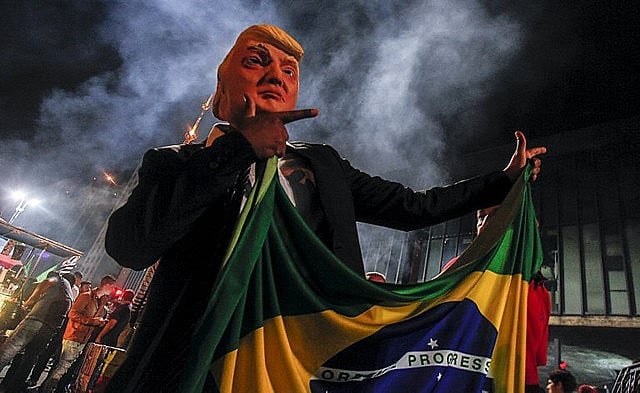Representatives of the Brazilian government and the United States government signed on Monday an agreement that will open up the Brazilian Alcântara space base to US satellite launches.
Brazil’s foreign minister, Ernesto Araújo, and science and technology minister, Marcos Pontes, signed the agreement with representatives of the American government after almost 20 years of talks between the two countries. The Brazilian president, Jair Bolsonaro, was also present during the signing of the deal.
In order to be in effect, the deal has to be passed by the Brazilian Congress.
Brazil has barred the Technology Safeguards Agreement that opens up the space base for commercial use twice before: its Congress barred it in 2001 during the Fernando Henrique Cardoso administration, and Brazilians voted against it in a plebiscite around the same time.
In 2016, the Michel Temer administration tried to push it, but still was not able to pass it.
The original proposal by the United States government banned Brazil from using its own space base allegedly to defend American technological secrets, imposing Brazil’s submission to a foreign country that holds 80 percent of the space market.
The new bill replaced the term “segregated area” with “restricted area,” to try to deflect criticism about the country losing autonomy as it signs the commercial deal with the United States.
Flávio Rocha, a foreign affairs professor at the Federal University of the ABC Metropolitan Area, says that now the United States will have access to the most strategic place in the world to launch satellites, near the equator. An expert in geopolitics and international security, Rocha argues that the agreement is motivated by an “ultra-neoliberalizing” policy.
“It [the agreement] aims at a geopolitical alignment at all costs, in the short term, with the United States,” Rocha says.
Sovereignty at risk
The professor points out that the negotiations over the commercial use of the Alcântara space base puts Brazil’s sovereignty at risk. “The biggest risk I see is that the country may lose political and ideological autonomy to develop a number of technologies that would be good for the national interest. These are technologies that would allow us to choose strategic partners, partners to develop a whole range of science and technologies that could put Brazil on a whole different level from what it is today in the global scientific community,” he adds.
In 2017, during the negotiations conducted by the Temer administration, Ronaldo Carmona, a geography researcher at the University of São Paulo, spoke with Brasil de Fato about the risks of US presence in the country, as Washington’s interest is to contain the rise of new powers.
“The United States has always moved to reduce Brazil’s strategic capacity to be a country with greater autonomy and conditions to assert itself as a power among nations,” Carmona said at the time.




